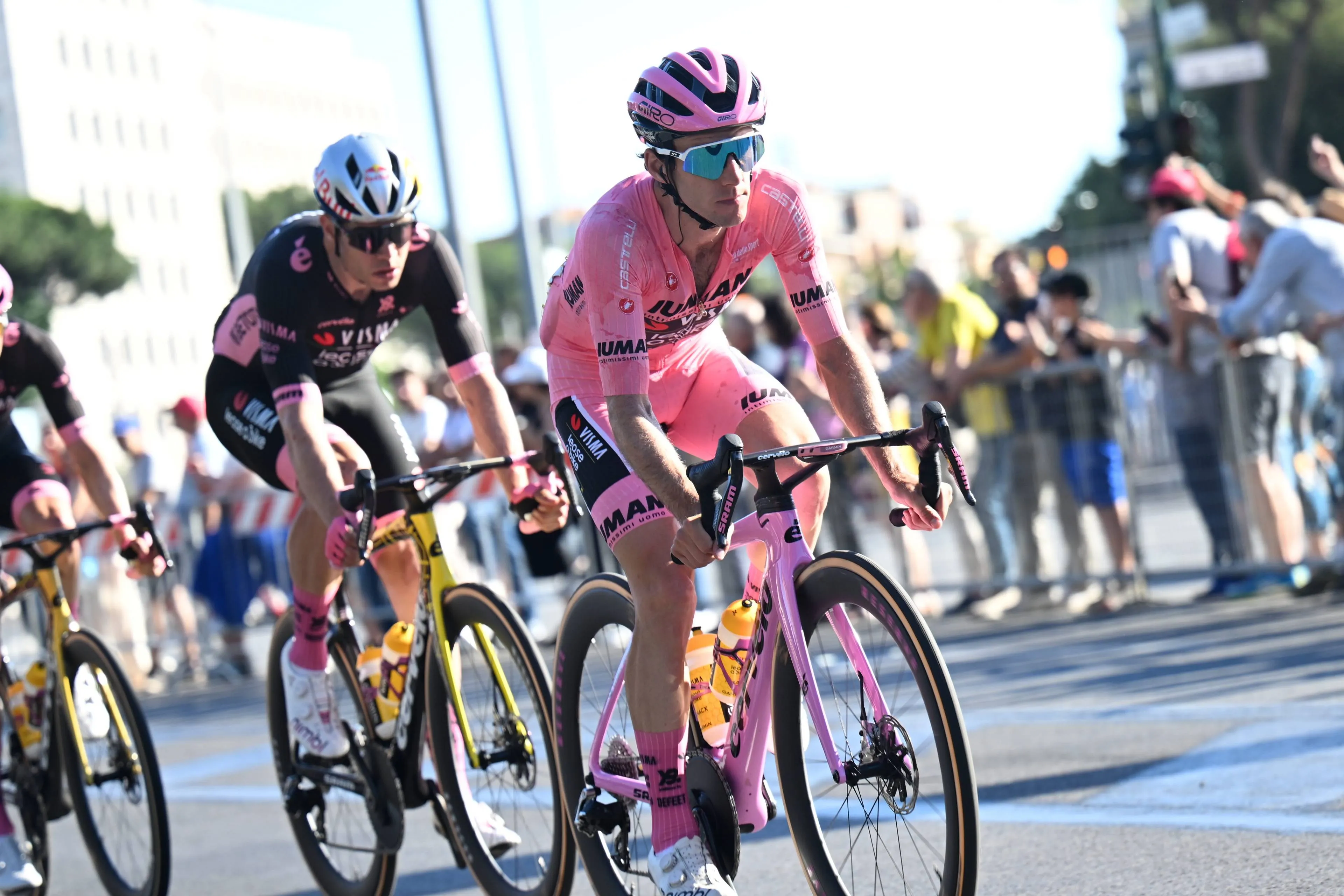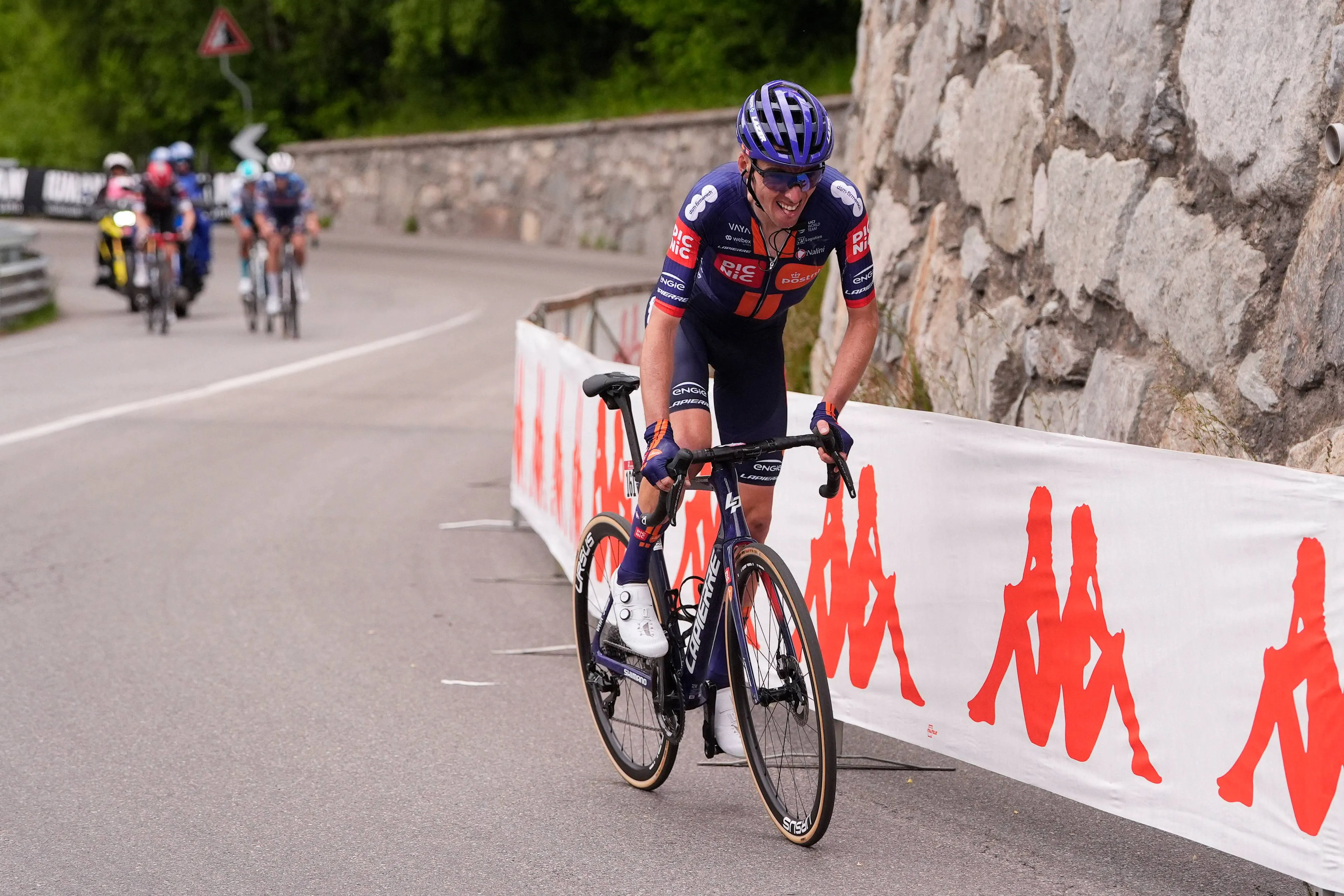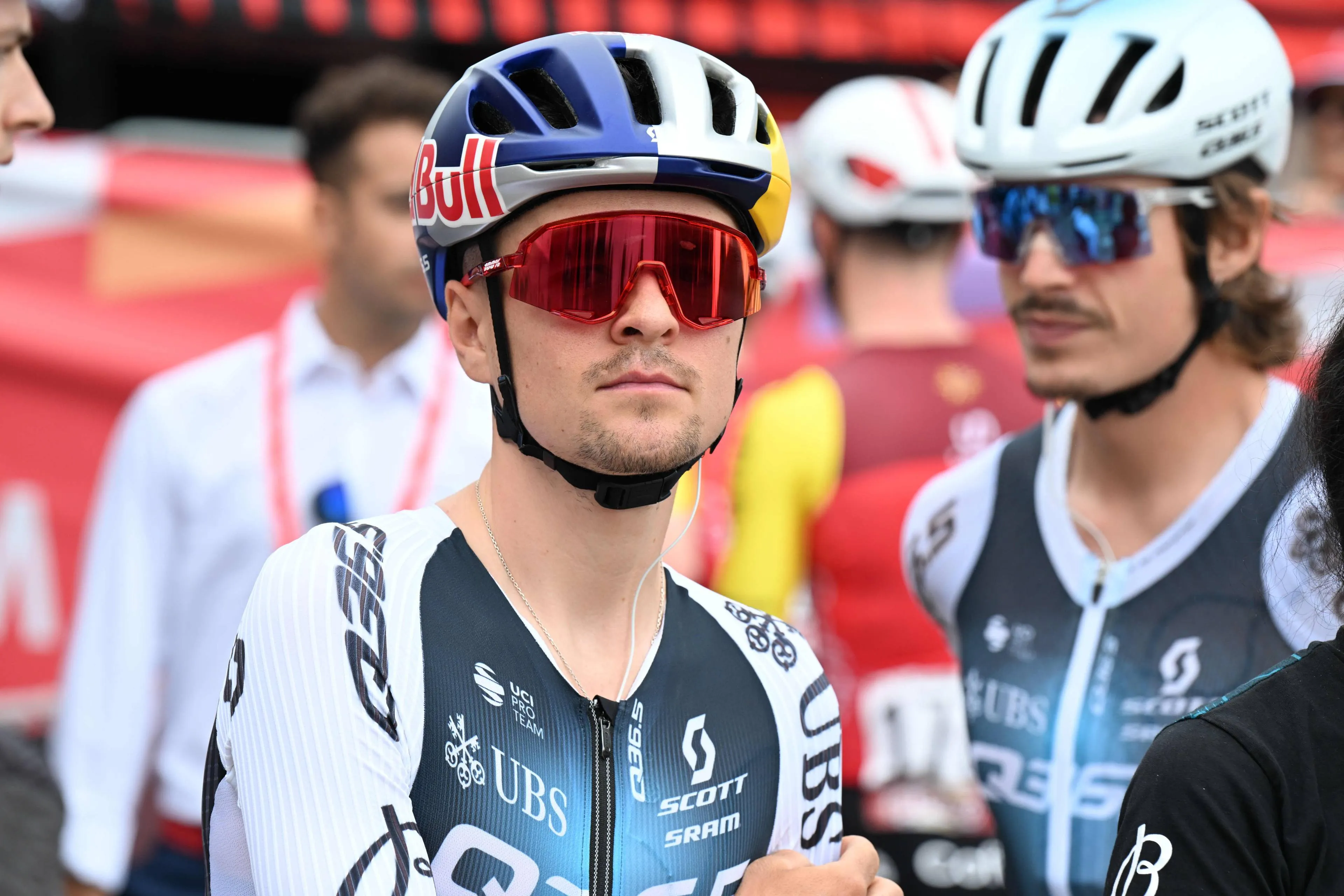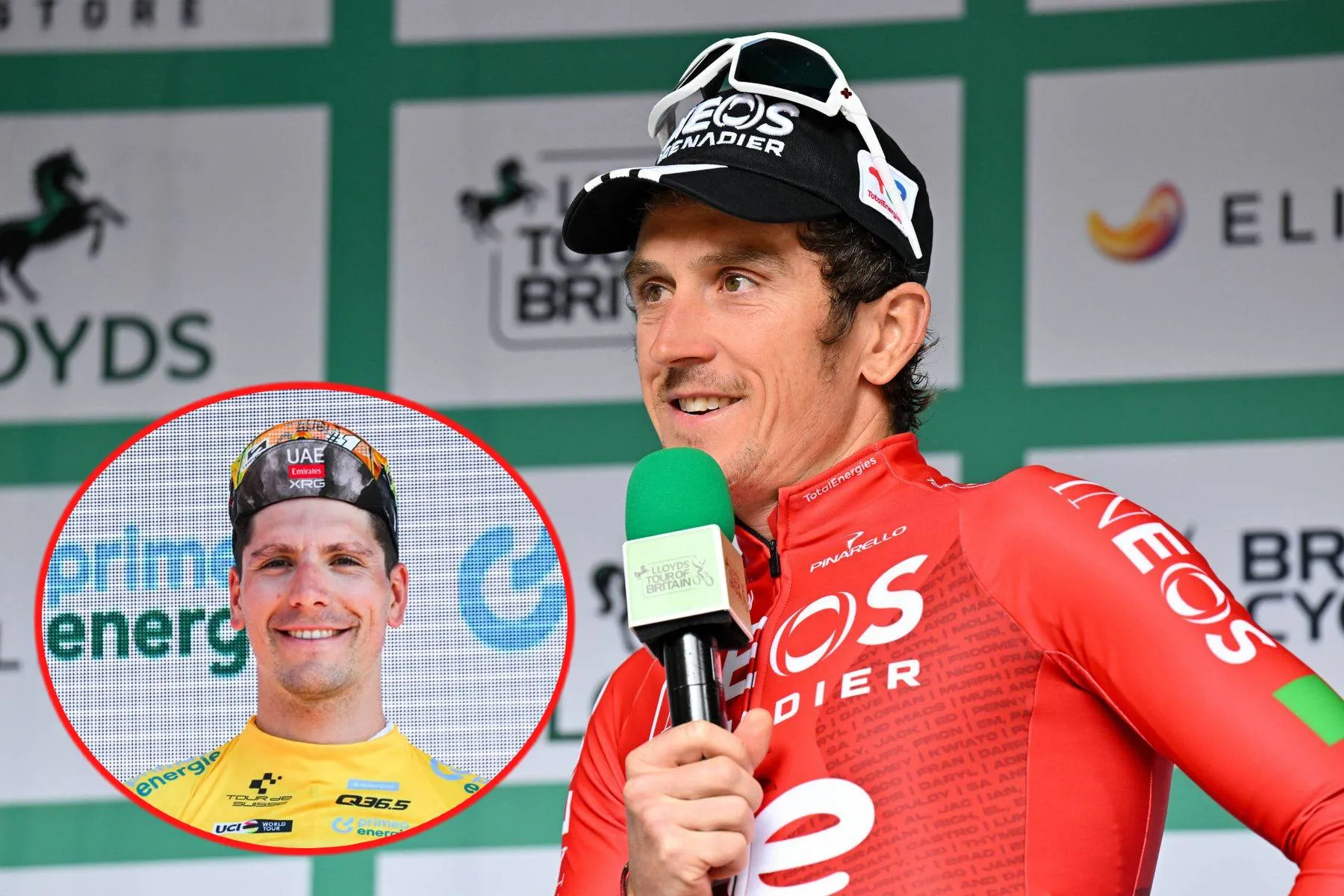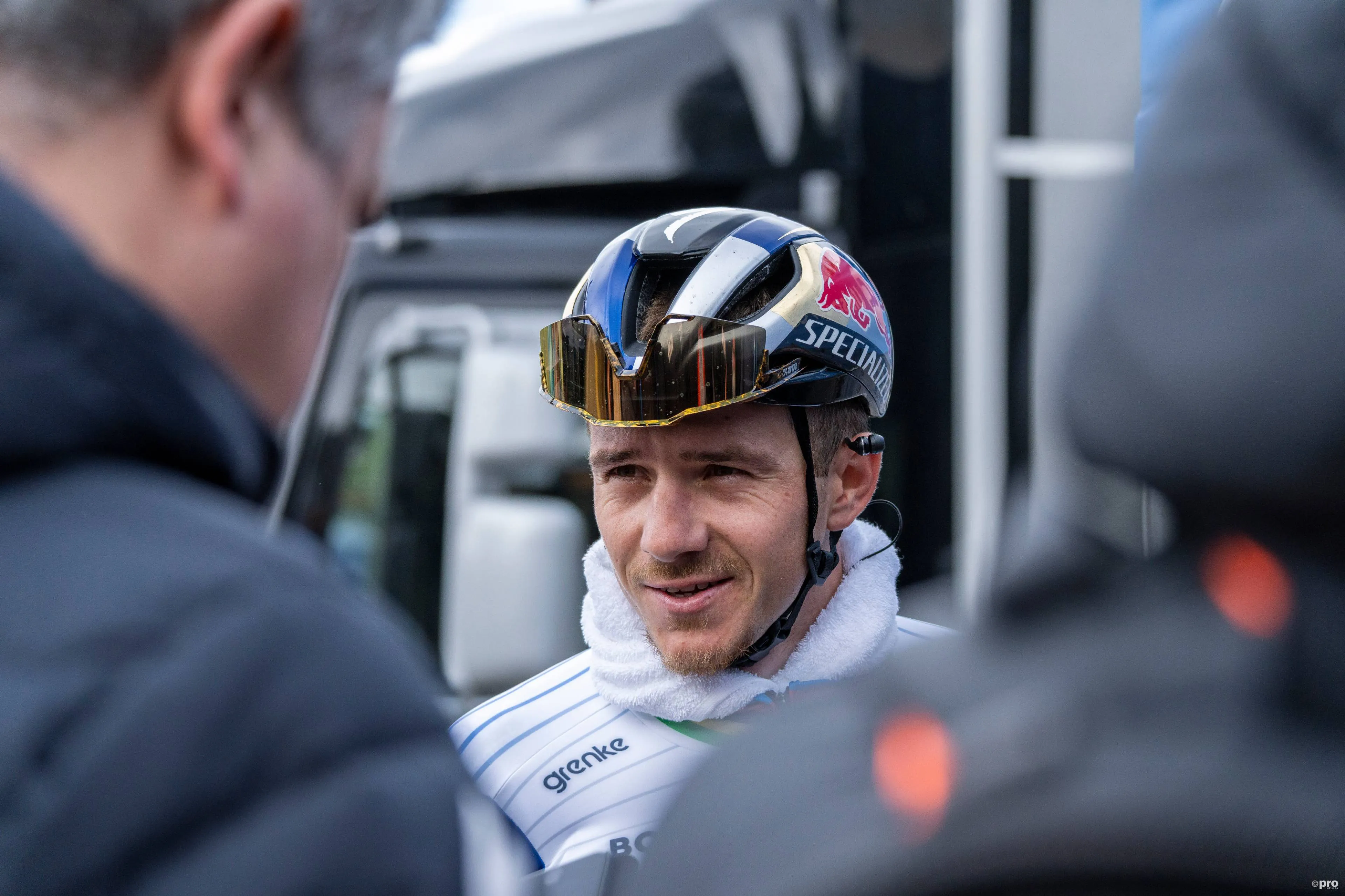"We welcome our Saudi friends" - $250 million One Cycling Project enters crucial period as UCI deadline looms
CyclingWednesday, 04 June 2025 at 11:30

After months upon months of speculation and presentations,
the One Cycling project now faces its pivotal moment. In the next ten days, the
UCI will make a crucial decision on the WorldTour race calendar for the next
three years, an outcome that will either clear a path for One Cycling or push
its ambitions further into the future.
With $250 million in potential Saudi investment and major
WorldTour teams reportedly ready to sign up, cycling finds itself at a
crossroads. Yet, as UCI president David Lappartient's latest comments show,
this revolution is anything but guaranteed.
Read also
At its core, One Cycling seeks to modernise professional
road cycling by fundamentally reshaping its financial and competitive
architecture. Backed by Saudi investment via the sports venture SURJ, the
project proposes a shift from the sport’s traditional sponsorship dependent
model to a more centralised, commercially sustainable structure. Teams would
receive a share of broadcast rights, ticketing, and hospitality revenue, while
fans and sponsors would be more directly monetised through an envisioned ‘One
Cycling Global Race Series.’
The project promises new elements such as: more urban,
criterium-style races, tighter narratives, and the commercial packaging long
seen in Formula 1. But with those promises come profound risks, chiefly, the
disruption of cycling’s historic institutions and the consolidation of power
into a new, untested commercial superpower.
So, it comes down to tradition vs capital.
Read also
Lappartient, in an interview with Marca, welcomed One
Cycling’s intentions, particularly the desire to attract new audiences and
diversify revenue streams. “We welcome any initiative to engage the cycling
audience and make our sport more attractive, to bring in additional revenue,”
he said. “Therefore, all investors are welcome. And we welcome our Saudi
friends.”
However, that welcome comes with increasingly firm red
lines. The UCI president was clear: any changes must respect existing UCI
regulations and honour the integrity of long-standing races. “We have to be
careful not to give an advantage to a particular race just because it's part of
One Cycling. Paris-Roubaix will always be Paris-Roubaix, whether or not it's
part of that project.”

One Cycling could mean drastic implications for the Tour de France
This is where One Cycling’s vision and the sport’s
traditional structure begin to clash. According to reports, the proposed model
would reshape the racing calendar with new formats and new ownership structures,
potentially undermining the position of races organised by the likes of ASO
(Tour de France, Paris-Roubaix) and RCS (Giro d’Italia), who have thus far
resisted the initiative.
This tension is not new. In fact, One Cycling’s potential
has been met with scepticism for some time. In February, our analysis
highlighted that the goal is to address cycling’s broken financial model by
reducing its dependence on unstable team sponsorships and redistributing
revenues more equitably between teams, organisers, and governing bodies. But
critics fear it could marginalise traditional races, compromise competitive
balance, and concentrate decision making among a handful of stakeholders.
Lappartient echoed this concern in his comments last week,
“We need to know exactly what the One Cycling project is all about. We need to
understand more about the economic model... It’s clear they have to contribute
something to the stakeholders, the cyclists, the organizers. Not just
destabilize what we have already.”
Read also
It’s a delicate line to walk. While few deny that the
current economic structure of cycling is fragile (team budgets remain almost
entirely dependent on title sponsors, with minimal revenue from the races
themselves) the path to reform is treacherous. The memory of past failed
breakaway leagues still lingers. For One Cycling to succeed, it must offer
stability and inclusiveness, not disruption disguised as progress.
This is why Lappartient’s warning that “it’s something we
must all build together, not just by a few,” cuts to the heart of the current dilemma.
For the UCI, One Cycling cannot simply be a coalition of ambitious teams and
wealthy investors. It must be a unified vision that respects the ecosystem of
riders, organisers, and fans.
That ecosystem is watching closely. According to reports,
teams such as Visma | Lease a Bike, EF Education–EasyPost, Ineos Grenadiers,
Soudal – Quick-Step, Lidl-Trek, and Red Bull – BORA – hansgrohe are prepared to
buy in. The proposed investment, reported to be in the region of $250 million, would
underpin a long-term business plan with shared revenue, event innovation, and
potentially a new calendar structure that complements or competes with existing
WorldTour events.
Read also
But the UCI now holds the cards. Its upcoming decision on
the WorldTour calendar is effectively a gatekeeper move. Approving a structure
that accommodates or validates One Cycling’s ambitions would signal tacit
support. Denying it or delaying it past 2026, as Lappartient hinted, could
stall the project indefinitely, especially if it fails to win over powerful
race organisers like ASO and RCS.
Without doubt, the next few weeks are crucial. And right
now, it seems that the UCI faces an uphill battle to convince the teams not to
agree to this lucrative proposition.
claps 2visitors 1
Just in
Popular news
Latest comments
- You need to get out moreJezla18-02-2026
- Ego and self regard are at the center of most human folly.TheOlderIGetTheFasterIWas18-02-2026
- You can't win 'em all. These early season races at this level are good because it shows where you are weak and need work.awp18-02-2026
- This is what I wrote 12-02-2026 10:00: "As far as I'm convinced, Remco still has "zero" wins. I invite Remco to stop in Siena to meet his Slovenian master, Pogi the G.O.A.T... but no, it's better to run away and hide. His fans will somehow defend and glorify him. Let me repeat, he still has zero wins in 2026. If someone doesn't have a high enough IQ to understand what I'm talking about, it's because they don't recognize the low ranking F category races. If Remco will beat Del Toro and Adam Yates in the UAE Tour, then I will consider this to be his first win in 2026. Ad acta." PS: Remco still has zero wins. His second and third class races don't count. The first real race comes along and Mustafa Remco fails.Mou-Cro-HR18-02-2026
- This is what I wrote 12-02-2026 10:00: "As far as I'm convinced, Remco still has "zero" wins. I invite Remco to stop in Siena to meet his Slovenian master, Pogi the G.O.A.T... but no, it's better to run away and hide. His fans will somehow defend and glorify him. Let me repeat, he still has zero wins in 2026. If someone doesn't have a high enough IQ to understand what I'm talking about, it's because they don't recognize the low ranking F category races. If Remco will beat Del Toro and Adam Yates in the UAE Tour, then I will consider this to be his first win in 2026. Ad acta." PS: Remco still has zero wins. His second and third class races don't count. The first real race comes along and Mustafa fails.Mou-Cro-HR18-02-2026
- OK, let's stop with the BS. Remco Mustafa didn't have any cramps, 100%. The only truth is, Remco is not the great cyclist that the Belgians and his fans want us to think. Ad acta!!!... Once in the fall of 2025 I said that Remco's chances of following Pogi are equal to my chances, there is no difference. The only difference is that I'm in front of a TV and Mustafa is acting and making excuses live in front of an audience of millions. Ayuso and Remco are the biggest liars in the peleton.Mou-Cro-HR18-02-2026
- I just hope that he just says that he got cramps and that's it, rather than some long-winded excuse which makes him seem even more of a piece of...
 Rafionain-Glas18-02-2026
Rafionain-Glas18-02-2026 - finally, a team that does something smart. I could never understand why Ineos would like Egan train as he did alone. put a motorbike behind him with an earpiece to call out issues above. same with remco crashing into a postal truck.mij18-02-2026
- Wow, that is not a good sign for Remco. Great win for Tiberi!Pedalmasher18-02-2026
- Great champion Remco but his profile is more suitable for Ardennes-like races and tour with no very hard climbs. Not only Tadej and Vingegaard, there are a lot of younger cyclists (del Toro, Ayuso, maybe Seixas, Nordhagen and others) that will soon be big GC boys.
 maria2024202418-02-2026
maria2024202418-02-2026
Loading
Write a comment

